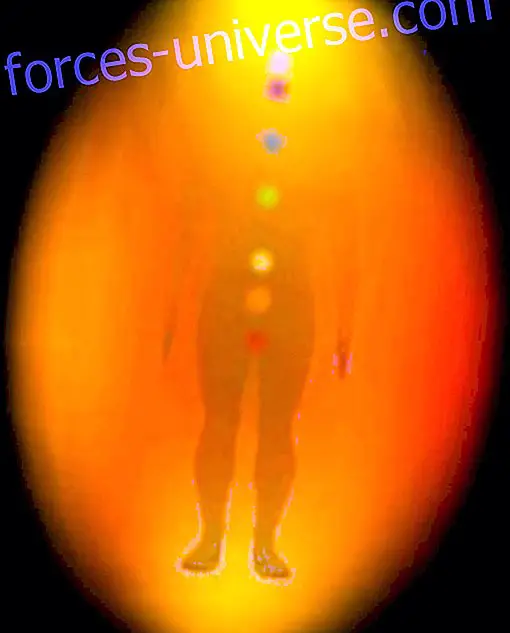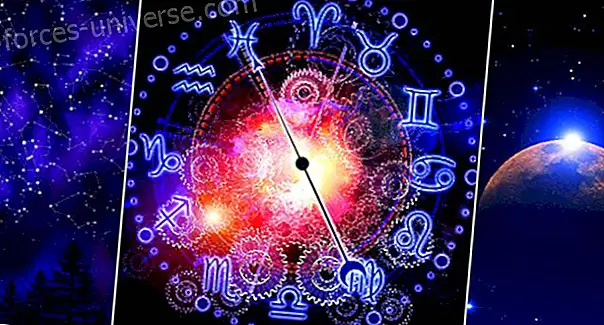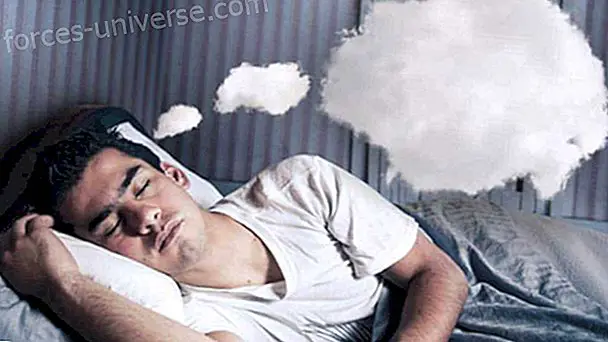On waking up: What is the difference between sleep and dreams? A dream analysis.
- 2019
We spend half of our lives asleep and still the dream world is a mystery to many, because when we are about to experience that world our reasoning abilities diminish, to the point that we stop perceiving the waking world and immerse ourselves in that . Sleep and wakefulness seem to be opposite, as Aristotle says in the Treaties on Sleep, contained in the work Parva Naturalia, however a study on sleep and dreams will illuminate these gray states between dream-dreams and wakefulness. If you are a real seeker you will be wondering what are dreams ? What are dreams for? How can I wake up ?

What is the dream?
The word " dream " is ambiguous, since it can mean both the state of rest through which any animal passes and the activity of the soul during that state. This ambiguity is typical of the Spanish language, because in other languages there is a word for each expression. In ancient Greece the " dream " was said to be " dream " and " dreams " ἐνύπνιον. Both words have a relationship, but also differences . In this part we will explain what is the dream (ὑπνος)?
Sleep definition
By way of definition, sleep is the state in which the senses meet, says Aristotle (454-30 ss), incapacitated, that is, the eyes do not see, the ear does not hear, the body loses contact with the physical world to rest . In addition, the dream has to do more with the physical body than with the soul, because the body after hours awake needs to rest and renew itself . That would be the main function of the dream. Although one might ask, is the body and soul completely incapacitated during sleep? There are those who claim to be sleepwalkers or during sleep feel cold and clothe themselves, or manage to hear the alarm and get up, they can even smell that something stays and they run. All these cases are testimonies that this inability of the senses during sleep is not absolute, but partial and temporary. Something similar can be said of its opposite, the vigil . Who is fully aware of their surroundings at all times? There are more things we do not see than we see. We can even say that we are more asleep than awake . Between sleep and wakefulness there is more a similarity than an opposition.
What are dreams?
On the other hand, dreams (ἐνύπνιον) are said to be the activity of the soul during sleep (ὑπνος). During the vigil the perceptive being receives the impressions of the external world, understands them - some - and stores them forming memories. On the other hand, during sleep, the soul reproduces the remaining images printed in our perceptual faculty. These images can be from that day or from long ago.
However, the existence of these dream images is a mystery, because there are testimonies that say they have never dreamed, others think they dream sometimes, others sometimes remember them. You may think that not everyone dreams. Just as it is believed that there are some animals that do not dream, like the ant, there are men who do not dream either.
The role of dreams
Now, if we knew the function of dreams, we could understand what activity occurs during sleep. We already mentioned that the function of the dream is to rest to renew the body, something similar would be the function of the dreams . At first, the function of dreams would be a way of teet the perceptual impressions generated during the vigil . However, for many readers this dream function is poor, even meaningless, compared to the vastness of the dream world, but from this simplicity we can rescue that those who do not dream He (if the case is true) does not restart or renew his ideas or thoughts, rather they accumulate these images and are tired upon awakening.
In a second moment, the function of dreams would be to make visible those desires, fears, anger, or any action that during the vigil moved our soul ; It would be a passive state of the soul, like watching a movie. According to this, dreams would be important for the understanding of yes, but difficult to access them, because once awake many times there is no memory of what is so. ado, or only fragmented, or incoherent memories .

According to this, if it is so complicated to access dreams, why do we dream? Not being able to remember these dream images upon awakening and accepting the passivity of the soul in the face of the flow of remnant images detract from the wonderful dream world, but it also drives new studies and new interpretations, for example the study of the case of being awake during sleep, namely the apparent contradictory state called " lucid dreams ."
What are lucid dreams?
Dream studies accept types of dreams ; the first type of dreams we explained above, but another type of dreams are the " lucid dreams ". These dreams are characterized by the degree of awareness during the dream : the dreamer knows that he is dreaming, the intellect and perception are active, he can modify his environment, he has the memories of the vigil giving him the ability to interpret, store the memories of consistent way and remember them when you wake up. These types of dreams can occur spontaneously or induced . The first occurs, according to current research on sleep, in the REM O MOR (Rapid Eye Movement) phase, in which the dreamer accidentally realizes he is dreaming . The second occurs consciously, when from the waking state consciously enters the dream.

The yoga of dreams
Already in the Eastern culture was the Yoga of dreams developed by Tibetan Buddhism, in which practice is recognized to strengthen the will, distinguish the illusion and then after mastering the dream will be passed to meditation practices. This Buddhism recognizes the clarity and importance of lucid dreams, because they are presented to minds that have chosen the spiritual path. In this conscious state the soul receives messages from its spiritual guides. These messages are clear and concise for greater understanding.
Now, the function of lucid dreams, according to the Yoga of dreams, is the knowledge of oneself and the understanding of wisdom . Hence its importance; Becoming aware during sleep will give us the key to open the door lock hidden behind a veil. Once inside the doubts are cleared and upon awakening we are more aware that our thinking creates the physical world .
To conclude, sleep is a physiological state that serves to renew the body and perform in the different activities of the day, its lack has physical and psychological consequences. On the other hand, wakefulness is the awake state. Both sleep and wakefulness are not entirely opposite, since in the vigil one is not fully awake, even during sleep without perception. We can even recognize during the dream levels of consciousness that generate lucid dreams . The human being is so impressive that he manages to wake up in dreams and sleep in wakefulness. Little is missing to make two realities ONE, stay awake and bright .
Author: Rosmery Guerrero, Editor in the Great Family of hermandadblanca.org






